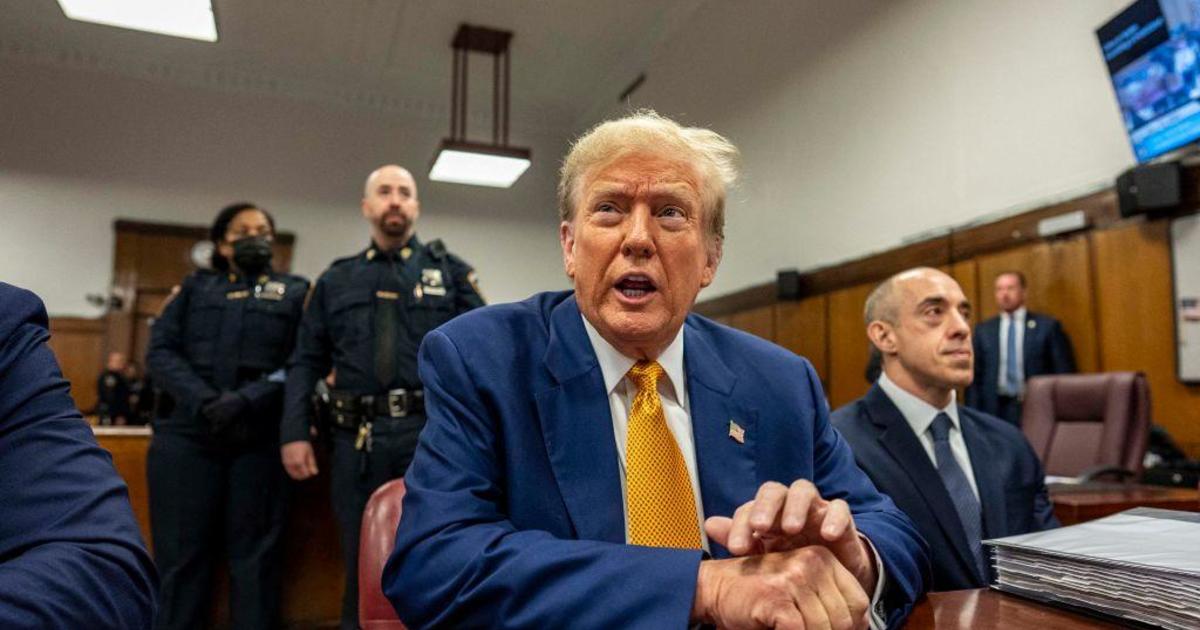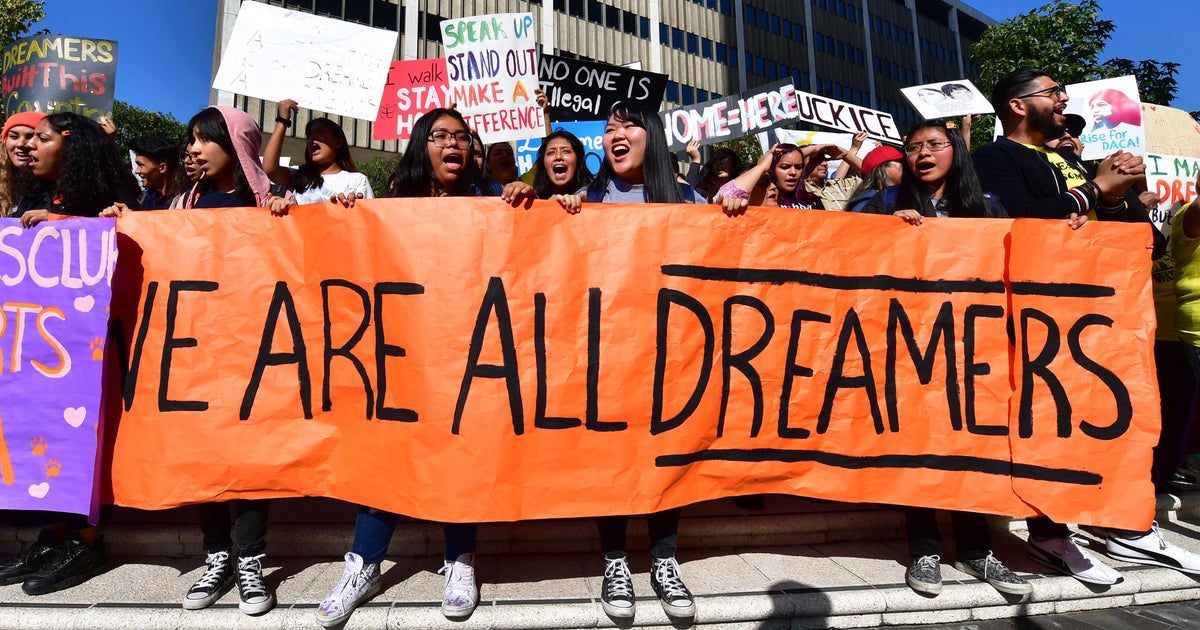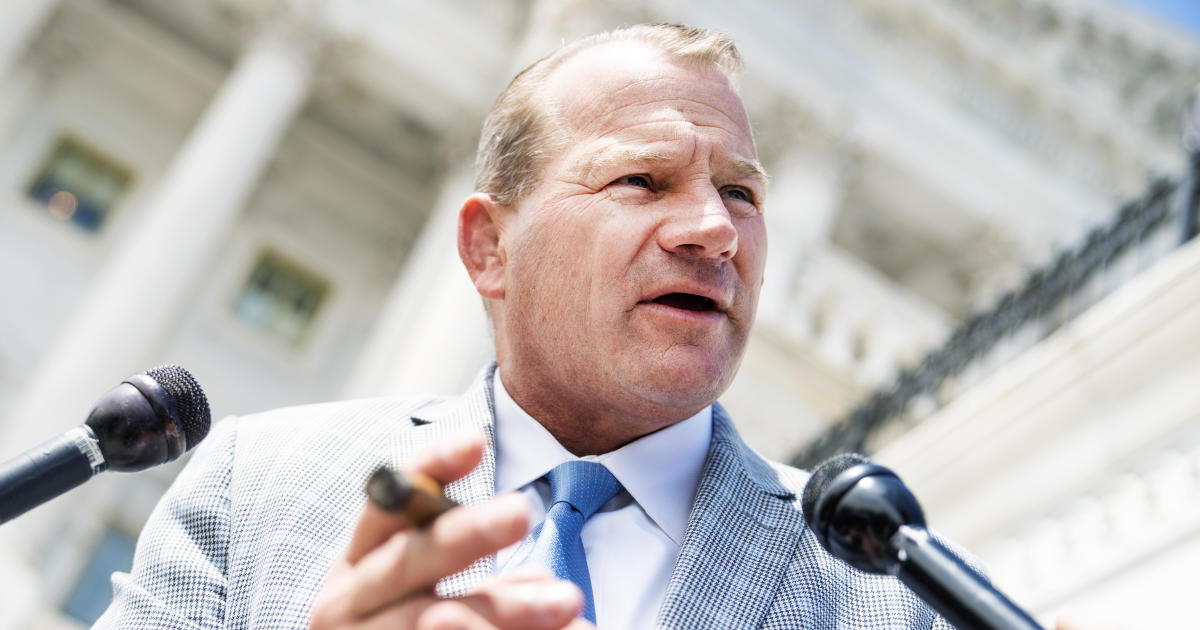How Trump and past presidents have wielded the presidential pardon
As President Trump's final days in the Oval Office wind down, he's widely expected to exercise the power of the pardon, as his predecessors have. Pardon reviews tend to snowball at the end of an administration, and Mr. Trump has not hesitated to extend clemency to a small number of Americans, including some of his controversial allies.
However, the number of people he has pardoned so far is much smaller than his immediate predecessors. Up to this point, President Trump has pardoned 29 people. By the time President Obama had left office, he had pardoned 212 people; 189 were pardoned by President George W. Bush; and 396 received a pardon from President Clinton, according to Justice Department data. Unlike Mr. Trump, however, each of them had eight years to grant pardons, not four. Franklin D. Roosevelt, who served three terms, granted more pardons than any other president — 3,687.
President George Washington issued the first pardon in 1795, to two farmers sentenced to die for their role in the Whiskey Rebellion, stemming from a whiskey excise tax championed by Treasury Secretary Alexander Hamilton, Smithsonian Magazine noted. In pardoning the two men, Washington said that while he viewed it as a sacred duty to exercise "with firmness and energy" his constitutional powers, "yet it appears to me no less consistent with the public good than it is with my personal feelings to mingle in the operations of Government every degree of moderation and tenderness which the national justice, dignity, and safety may permit."
The presidential pardon power allows the president to pardon any federal crime — it does not apply to state crimes. Article II of the Constitution states that the president "shall have power to grant reprieves and pardons for offenses against the United States, except in cases of impeachment."
"The president's clemency power is very broad and virtually unchecked," Jeffrey Crouch, an expert on presidential pardons and assistant professor at American University, told CBS News in an email.
"The only limits in the Constitution are that the crime must be an 'offense against the United States,' or a federal crime (no state crimes qualify); the crime must have already been committed; and the president isn't able to use clemency 'in cases of impeachment,' or to stop someone from being impeached or to undo a prior impeachment."
A pardon does not expunge the crime from a person's record, according to the DOJ. That was re-established in the case of Arpaio, and affirmed by the 9th Circuit earlier this year, Bernadette Meyler, a law professor at Stanford Law School, noted in an email to CBS News.
Of the 29 pardons Mr. Trump has granted as of this writing, several were either allies or supporters of the president, including former Maricopa County Sheriff Joe Arpaio, who received Mr. Trump's first pardon in August 2017. He was found guilty of contempt of court when he refused to follow a judge's order to halt immigration roundups, and Dinesh D'Souza, a conservative author and conspiracy theorist found guilty of campaign contribution fraud.
The president's most recent pardon was given to his former national security adviser, Michael Flynn, who was found guilty of lying to the FBI about his Russian contacts.
The president also pardoned Oregon ranchers Dwight L. Hammond and Steve D. Hammond, who were serving five-year sentences for arson on federal land, a case that sparked the armed occupation of a wildlife sanctuary back in 2016.
Mr. Trump granted an even more infamous pardon to "Scooter" Libby, the former chief of staff to Vice President Dick Cheney who was convicted of obstruction of justice, making false statements and perjury.
Mr. Trump has also used his power of clemency to famous people in the world of sports, including a pardon he granted to Edward J. DeBartolo Jr., former owner of the San Francisco 49ers.
The president's pardons have also included lesser known names, and criminal justice reform advocates have urged him to pardon even more Americans who were unfairly punished or are serving disproportionately long sentences.
One such pardon Mr. Trump granted was for Roy Wayne McKeever, who was convicted of using a telephone to distribute marijuana after he was arrested at 19.
Alice Marie Johnson, a grandmother who was serving a life sentence for drug-related offenses, became the face of the Criminal Justice Reform Act, one of the most significant Trump-era pieces of legislation that the president now rarely mentions when listing his accomplishments. The president granted her a full pardon in August of this year.
In addition to the pardon power, the president may also commute sentences, as he did for ally Roger Stone, who was convicted in November 2019 of witness tampering and lying to investigators. Commuting a sentence does not eliminate the conviction, but shortens or eliminates a sentence.
So far, "Trump has not pardoned very many people when compared to his recent predecessors," Crouch said. "But those who have received clemency from him are predominately his political allies, supporters or people with the right connections. The president should grant pardons for one of two reasons: to show mercy to someone or to serve the public welfare. When a president pardons to pursue his own personal interests, the decision may be legally acceptable, but it is still an abuse of the pardon power."
Of course, Mr. Trump is far from the only president in history to grant controversial pardons.
Gerald Ford was intensely criticized for pardoning Richard Nixon in 1974 for any crimes committed related to the Watergate scandal. Mr. Ford, estimating that any criminal trial of Mr. Nixon "could not fairly begin until a year or more has elapsed," predicted that the nation's "tranquility," restored by Mr. Nixon's resignation, "could be irreparably lost by the prospects of bringing to trial a former President of the United States."
"The prospects of such trial will cause prolonged and divisive debate over the propriety of exposing to further punishment and degradation a man who has already paid the unprecedented penalty of relinquishing the highest elective office of the United States," President Ford said in the proclamation of Mr. Nixon's pardon.
The Supreme Court has "interpreted the president's power to pardon under Article II even more broadly than the founders would have envisioned it," Meyler noted.
"In particular, the court, following the Civil War and controversies about President Johnson's pardons of members of the former confederacy, maintained that pardoning includes amnesty and can cover all past acts, whether charged or not," Meyler told CBS News in an email. "Hence. President Ford pardoned President Nixon in rather general terms 'for all offenses against the United States which he, Richard Nixon, has committed or may have committed or taken part in during the period from January 20, 1969 through August 9,1974.'"
George H. W. Bush pardoned Caspar Weinberger, Ronald Reagan's defense secretary indicted for perjury and for obstruction of justice over the Iran-Contra affair, days before Weinberger's trial. Weinberger had claimed he was unaware of the illegal sale of arms, which later proved to be untrue.
One thing that remains to be seen is whether Mr. Trump will issue any preemptive pardons against future prosecution for his family or allies for crimes they may have committed, although that would not protect any of them from state prosecution. The New York Times reported earlier this month that the president has discussed with advisers the possibility of preemptive pardons for his three eldest children — Eric, Donald and Ivanka.
Mr. Trump has until noon on January 20 to sign off on any pardons.



